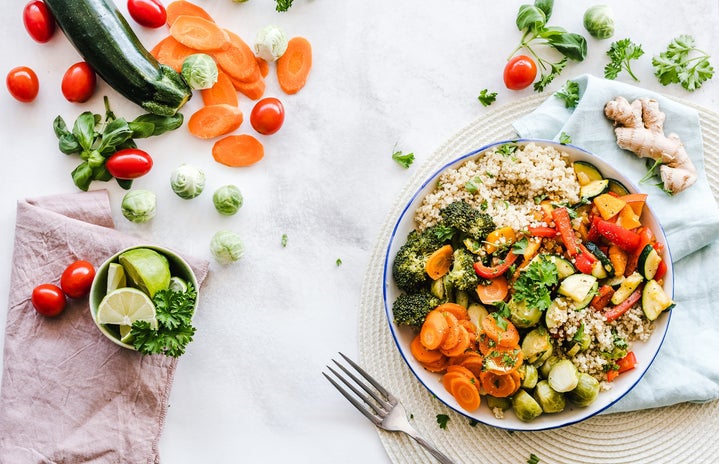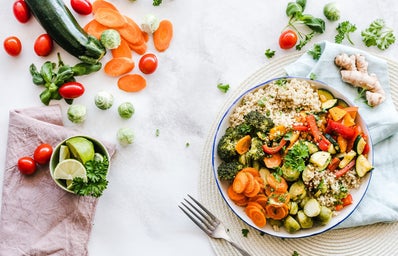Growing up around vegetarians greatly influenced the way I approached my diet. Witnessing my father prepare plant-based meals led me to question his peculiar lifestyle: how do people enjoy such bland-looking food? How would they obtain enough protein? I had no desire to change the way I ate, let alone consider the world of veganism.
The word “vegan” reminded me of two groups of people: health enthusiasts like my father and Los Angeles beauty influencers. I was neither.
In college, becoming a vegetarian crossed my mind after taking a health elective. I learned how a meat-heavy diet can impact your body and educated myself about the meat industry. I promised to cut down on the animal products I consumed, but being dependent on a college dining plan at the time rendered that goal near impossible.
As I finished my sophomore year, however, I began noticing the impacts of my diet on my health and well-being. Meat products often meant a higher intake of processed foods. I felt bloated all the time. I didn’t feel great after I ate or about what I ate. At the same time, I was also becoming more conscious about animal cruelty and the many horrors of the meat processing industry, all of which culminated with me researching the pros and cons of vegetarianism.
I learned that a vegetarian diet doesn’t automatically qualify as healthy. Without balance, it can lead to deficiencies in Vitamin B12, Vitamin D, iron, or calcium. I also learned that people have vastly different reasons for adopting these diets: physical or mental health, religion, food safety concerns, animal cruelty, or environmental and ethical reasons, among others. At the end of the day, it is vital to do your research before considering such a significant lifestyle change.
In July 2022, I became vegetarian. Just two months ago, I became vegan. While it has only been around 9 months total, it has been an insightful experience so far. Initially, relying heavily on fruits and vegetables was harder than anticipated. I had to constantly remind myself that to adopt such a diet, I needed to invest more effort into my cooking.
After several instances of feeling physically weak because of a lack of protein intake, I forced myself to learn new recipes and shop for plant-based items that taste good and fill me up. It is definitely a work in progress, yet one that I enthusiastically intend to continue.
Everyone’s vegetarian or vegan journey is unique. What works for one person may not work for another, and it is crucial to listen to your body. For me, being vegetarian and eventually vegan is definitely difficult at times. It has required mastering tofu recipes and looking into vitamin supplements.
That being said, I have felt considerably better after my meals, both physically and mentally. This small yet impactful lifestyle change inspired me to put a more conscious effort into what I eat, how I cook, and how to take care of myself in a way that works for me.
As someone who once rarely cared about what I consumed, my new diet has quite literally forced me to take a step back and make sure to maintain a well-balanced diet that leaves both myself and my body feeling happy. In the process, I’ve learned that cooking can actually be fun!
In short, everyone’s vegetarian or vegan journey looks different, and the reasons for considering a new diet vary widely. It truly comes down to listening to your body and learning what works for you!
Want to keep up with HCBU? Make sure to follow us on Instagram, like us on Facebook, check out our Pinterest board, watch us on TikTok, and read our latest Tweets!





